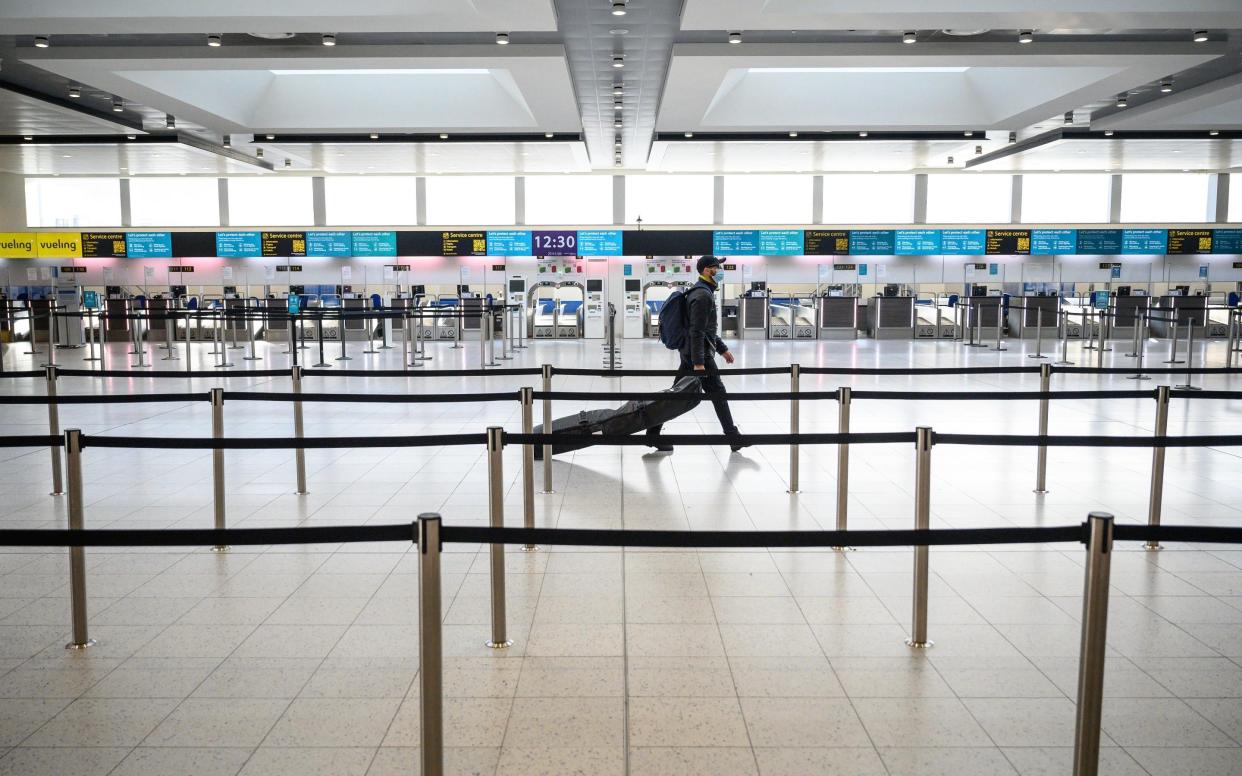Government faces backlash over 'impractical' pre-departure tests for passengers

The Department for Transport (DfT) faced a backlash from the travel industry as it unveiled an “impractical” pre-departure testing regime.
Tour operators and airlines were left mystified how they would ensure the Covid tests presented by passengers were “valid” under the highly “mathematical” rules laid down by the DfT.
The scheme - delayed until Monday as revealed yesterday by Telegraph Business - requires passengers to present tests at check-in that meet “performance standards of ≥97% specificity, ≥80% sensitivity at viral loads above 100,000 copies/ml.”
However, one airline source warned there was “nervousness” about how operators could be held legally liable for checking that passengers' test certificates met the required standards at busy check-ins where they may have just minutes with each person before boarding.
“The test certificates don’t say: this is a PCR, Lamp or lateral flow test with a certain specificity. It will just record a negative result. Check-in agents are not going to quiz passengers for ten minutes: ‘Where did you get this from? What was the specification? Can you prove it?” said an airline source.
Airlines can be fined £2,000 per passenger by the Civil Aviation Authority (CAA) for anyone without an appropriate test.
“They are putting the onus on the passenger and that makes airline legal teams nervous. Are you going to get a fine at the other end if Border Force decides to make an example of someone if it is not up to standard,” said a source.
Paul Charles, chief executive of travel consultancy The PC Agency, said the poor testing infrastructure in some countries would make it difficult, if not impossible, for travellers to get a satisfactory test.
“Is the DfT going to offer training for all airline staff around the world? That’s unlikely. There are going to be issues at check-in desks. There are some travellers who will panic at check-in because they will be told their test is not good enough. That will lead to people missing their flights,” he said.
“There’s no way this measure could be in place when more people are travelling. It’s simply unworkable at a time when there would likely be hundreds and thousands of people travelling. It has to have an end date before the vast majority of people are travelling again.”
The DfT delayed the introduction of the scheme until Monday at 4am after hold-ups meant its guidance on how the scheme would operate had still not been published less than 36 hours before the first flights were due to arrive in the UK.
A DfT source said the onus was on the passenger to ensure they had a test that met the specificity required while the department believed airlines would get accustomed to in-country testing centres had the capability to deliver on the necessary standards. The source accepted it would be “hard” for the DfT to validate them.

